哥伦比亚大学,唯一一所有新闻学院的常青藤大学,全球新闻专业的最高学府,每年录取的中国学生不超过10名。这些百里挑一的中国留学生中,有一个把他们的故事拍成了纪录片,看完悲喜交加。

By Simina Mistreanu
What is it like for young Chinese, who grew up watching CCTV and reading Chinese newspapers, to find themselves at one of the world’s top journalism schools, which values investigation, public service and in-depth reporting? The answer is tough.
一帮读着国内报纸长大的年轻人,突然进入世界顶级的新闻学院,学习调查采访、公共服务和深度报道,会是怎样一番景象?

Last Friday at Beijing’s Bookworm bookstore I watched the documentary Crossroads of Journalism Dreams. It follows four Chinese students during their year of graduate study at Columbia University Graduate School of Journalism in New York.
最近看的纪录片《米字路口》,可能就是上一个问题的答案。
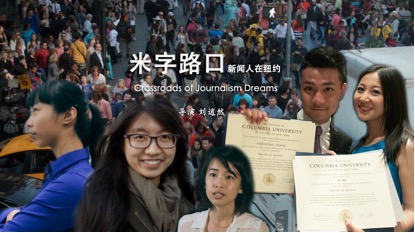
The director, Xiaoran Liu, herself a grad student at Columbia, documented the challenges and revelations that her Chinese colleagues experienced during their year in New York.
导演是哥大新闻学院12级的留学生刘小冉(音译)。她决定通过记录在哥大的困惑和迷茫把他们面临的挑战和得到的启发完整的展现出来。
Columbia Journalism School accepts fewer than 10 graduate students from China every year. They are generally top students, who have graduated from universities such as Tsinghua University and whose families can afford the costly tuition fees.
哥大新闻学院每年录取不超过10名中国学生。录取的在国内都是尖子生,从最好的大学毕业,家庭也支付得起高昂的留学费用。
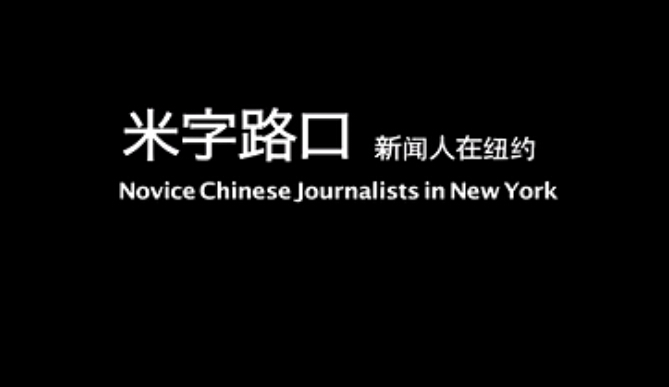
They’ve also been used to spending all of their time studying, and are surprised to see that won’t change in the U.S. One girl talks about her initial plan to take time for herself, which she had to abandon when she realized how busy her school schedule was.
他们习惯于埋头读书,不过美国大学的功课其实一点不轻松这点还是吓了他们一跳。其中一个女孩本来打算留学期间规划规划,做一些想做的事,结果是,她基本上可以把规划扔掉了。功课繁重的根本无暇顾及生活休闲。
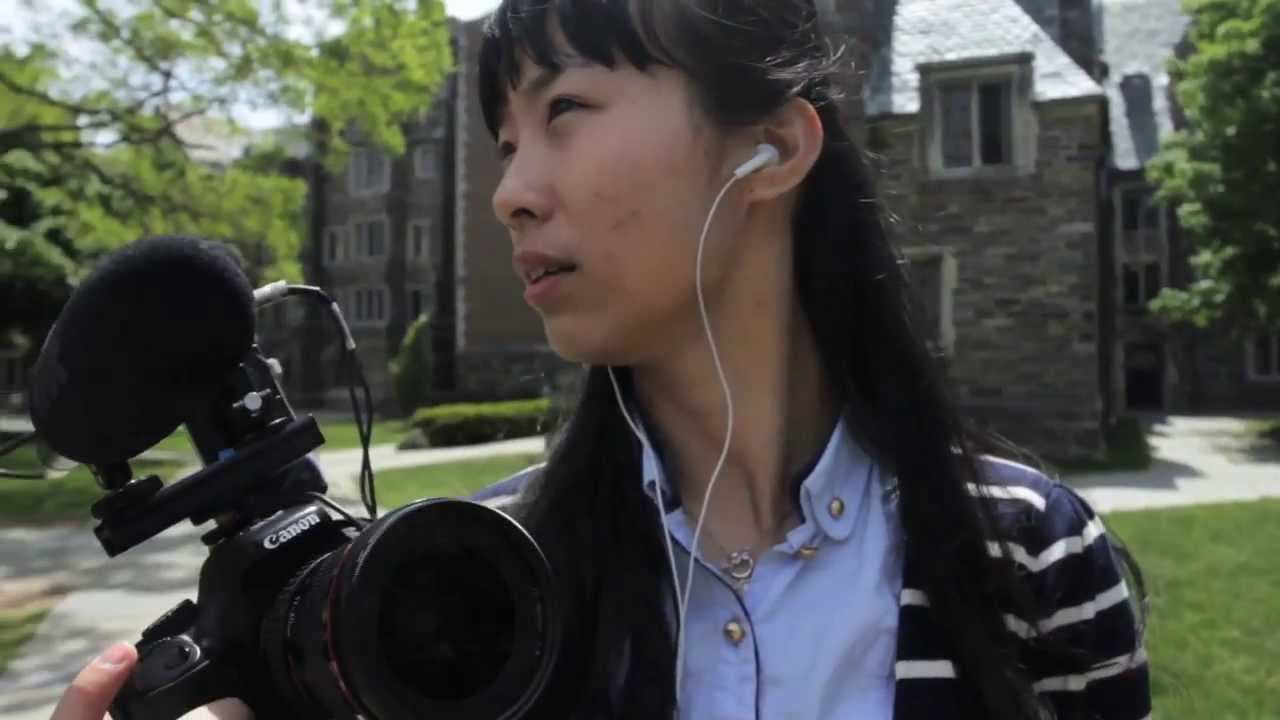
“It’s impossible for you to have even one whole day off,” she says.“
“没有一整天是完全属于自己的时间。”
”The heavy workload, though, is no news for anyone who has been a grad student in the U.S.
然而这种高强度的学习,美国大学生早已习以为常。
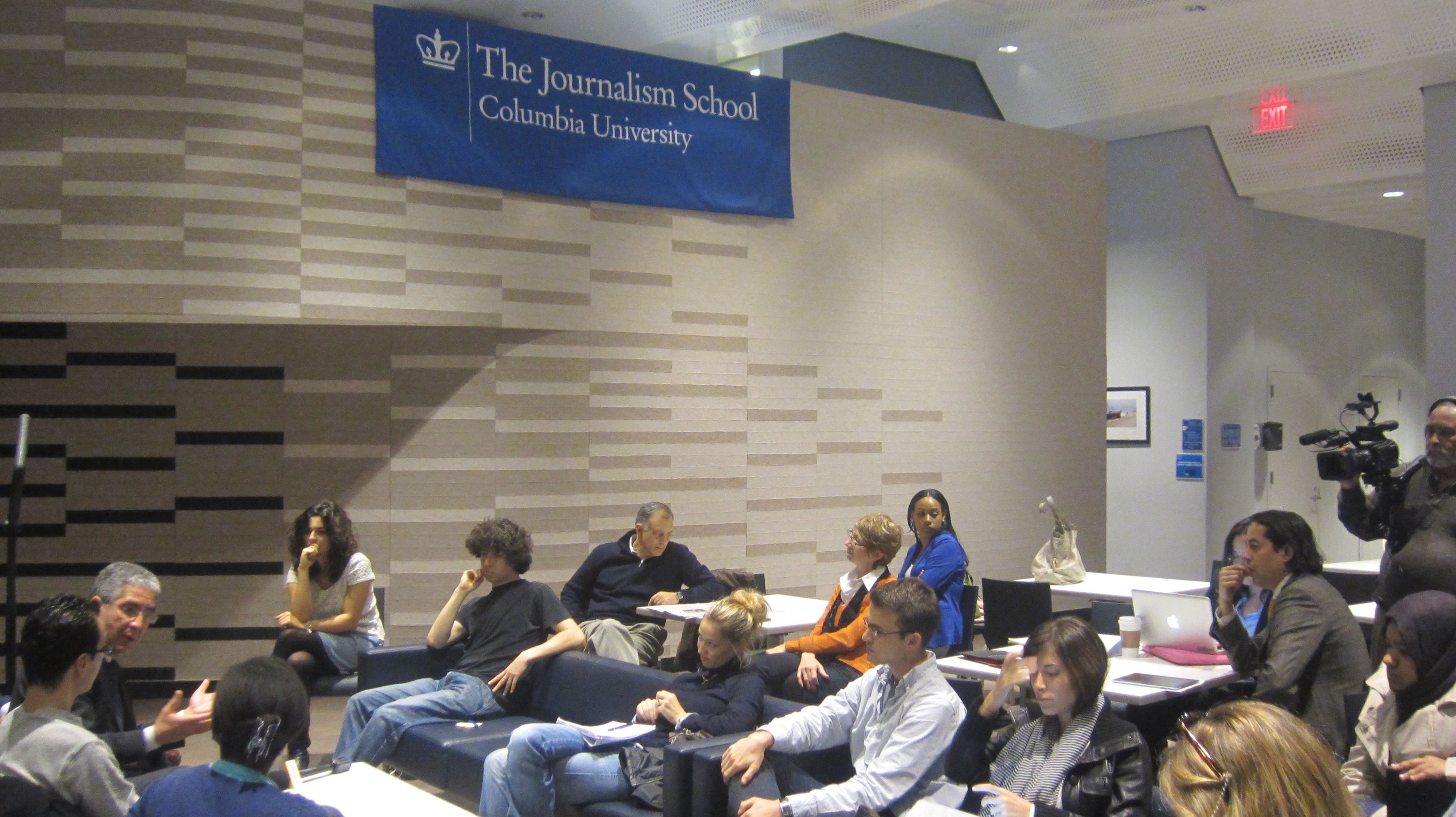
It was nice to see the students doing their assignments and interviewing people on the street – a practice that’s ubiquitous in American journalism but almost nonexistent in Chinese journalism.
为了完成作业,学生们不得不去街采。这个在美国新闻学校不可缺少的实践课程,在中国大学的新闻学院却难得一见。
The Chinese students worked hard, but faced challenges in that they were not used to write from a point of view and organize the information around a strong story concept, the documentary showed.
他们十分努力,然而在观点论述和资料整合上面仍然面临着挑战。
They started to question their role in the American journalism environment, on one hand, and in the Chinese media landscape on the other.
一方面,他们开始质疑自己在美国新闻业的存在感;另一方面,本国的媒体环境是否欢迎他们又让他们惴惴不安。
“What can I bring to American journalism,” one student asks himself. “I don’t want to stay here and write for Asian minorities.”
“我能给美国新闻业带来什么呢?”
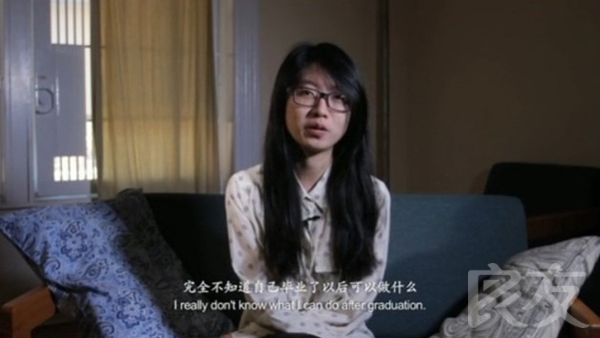
These are all challenges I’ve encountered myself as a journalism graduate student at the University of Missouri in 2011-2013. I was lucky to have involved mentors and previous journalism experience in Romania. I was also familiarized with American journalism having read a lot of American newspapers and magazines and contributed to the Romanian edition of Esquire magazine.
2011年到2013年,我在密苏里大学读新闻专业。我同样遇到过这些挑战。幸运的是,我有开明的导师和在罗马尼亚新闻从业的经验。我当时已经看过许多美国报纸杂志并且做过Esquire杂志的罗马尼亚版编辑,可以说我对美国新闻业已经很熟悉了。
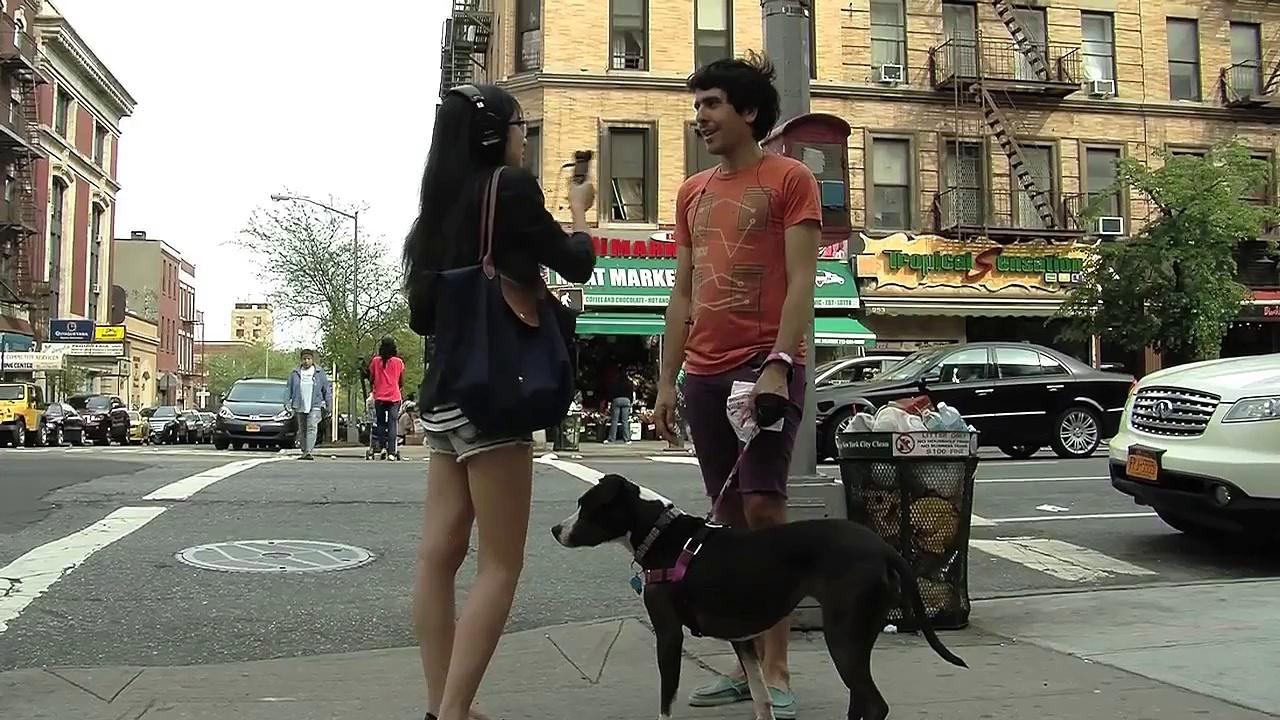
At the end of their year at Columbia, the Chinese students wondered whether they should try to stay in the U.S. or return home. All international students have the right to OPT – a year of optional practical training, or internships. The Chinese students applied for programs at large news organizations such as CNN and Time magazine. With virtually no journalism experience, their Columbia degree alone couldn’t compete.
在哥大的最后一年,他们开始考虑继续待在美国还是回中国。国际学生都可以一年的时间做自选性实习,于是他们申请了一些大型新闻机构,然而因为没有从业经验,即使是哥大的学历也不能让他们脱颖而出。
I think with some good advising they could have landed some internships at smaller or niche publications. In my case, my first internship during grad school was at The Wichita Eagle, a regional newspaper in Kansas. I worked my way up to an internship at The Oregonian the following year and eventually to a job there.
我给他们的建议是,尝试从小型媒体实习做起。我自己的第一份实习就是堪萨斯的一家本地报纸。一年之后我才跳到规模更大的《俄勒岗人报》。

As for the Chinese students, three of them returned to China at the end of grad school, while the fourth started a new master’s program to extend his stay in New York.
纪录片里的四名中国学生,最终有三个毕业后回国,另外那个继续在纽约读一个硕士项目。
But soon they realized they didn’t fit in the Chinese media environment either. Liu herself applied for a job at CCTV and never heard back. The students eventually found jobs at independent production companies, or in Liu’s case doing projects for CCTV. But the questions are how that year served them, and is it possible for American journalism to rub off on Chinese media.
回国的几个很快发现,他们已经很难融入中国的媒体环境了。刘小冉在央视找到了一份工作,再无下文。剩下的也慢慢进到了不同的单位。但问题是,美国的新闻从业理念到底能否影响中国的媒体观念?

It’s a complex issue. One of the specialists interviewed in the documentary said American and Chinese ways of doing journalism are fueled by different philosophies: American journalism believes it can right the society by reporting on it and holding power accountable; whereas Chinese journalism doesn’t believe society needs righting, but rather guidance in certain aspects.
这个问题很复杂。纪录片里的一名专家曾说,中美做媒体的方式是受不同的哲学观念所驱动的:美国媒体相信,他们的报道能够鞭策社会进步,而中国媒体则认为社会不需要纠偏,只需要特定领域的一些指引。

Before I came here, I didn’t think I would be bothered most not by the lack of freedom (which is a complicated topic), but by the lack of quality in the Chinese media. Even within the parameters imposed by propaganda guidelines, some good journalism could be done. But most stories and visuals are of low quality, lack depth and meaning. It’s like the entire media environment, with a few exceptions, is fake and serves as an appearance.
来中国前,我就想到会被这种差别所困扰。很多中国媒体的报道缺乏深度和内涵。整个媒体业的内容产出都浮于表面。
This was my culture shock, as an outsider coming into the Chinese media. I’d like to learn more about what that was like for the Chinese graduates, now outsiders themselves.
这算是我初来乍到中国媒体界所体验到的文化冲击了吧。那么那些身处其中的新闻专业的学生的呢,他们的未来道路又将如何?



评论